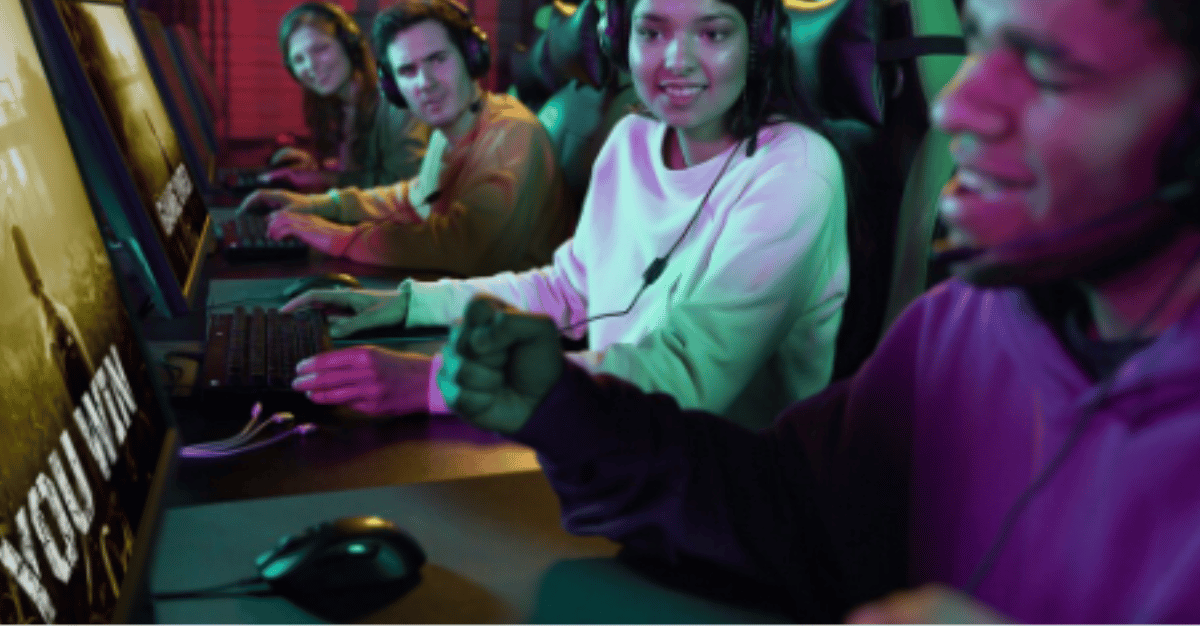Repack games have become a widely discussed concept in modern digital gaming culture, especially among players who want to access large titles without the burden of massive storage requirements or slow download speeds. At its core, a repack game refers to a version of a game that has been compressed and restructured to reduce its overall size while retaining its essential gameplay features, visuals, and story. Unlike full retail versions, these repackaged files strip away non-essential components, making them lighter and faster to distribute. The appeal lies in convenience, accessibility, and the promise of playing high-end games without needing terabytes of free disk space. In the first hundred words, the answer is clear: repack games are compressed versions of official titles designed for easier download and installation, often curated by individuals or groups specializing in compression.
This subject, however, goes far deeper than file reduction. Repack gaming opens conversations about technology, ethics, legality, and accessibility in global entertainment. Some see it as a way to democratize gaming in regions where bandwidth and storage are limited, while others raise concerns about intellectual property rights and piracy. Understanding repack games requires analyzing the technical process behind compression, the motivations of communities creating these versions, and the cultural impact of their availability. This article aims to unravel the history, methods, advantages, risks, and ethical debates surrounding repack games, while also mapping their place in the evolving gaming ecosystem.
What Are Repack Games?
Repack games are essentially compressed versions of official video games, restructured to take up less storage space on a computer or console. Developers of these repacks, often enthusiasts with technical expertise, identify redundant or non-critical files within the original game package and remove or compress them. Examples include eliminating foreign language voice packs that most players may not use, resizing textures to balance quality with file weight, or streamlining installation processes. The result is a leaner version of the game that maintains its primary mechanics but can be distributed in a fraction of the original size.
The purpose behind repacks is not only about saving space but also about efficiency. In many parts of the world, downloading a 100-gigabyte file is impractical due to slow internet speeds or high data costs. A repack might shrink that size to 25 gigabytes, allowing users to enjoy the game without waiting days for downloads. This efficiency makes repacks especially popular in regions with limited technological infrastructure.
The Technical Process of Repacking
Creating a repack is a technically demanding process that blends software engineering, compression algorithms, and practical decision-making. First, the game files are extracted from the original installer or retail package. From there, the repacker analyzes which elements are essential and which can be reduced. Music, voice acting, cinematics, and high-resolution textures are usually the largest file components. Some repackers use advanced compression tools to shrink these without major quality loss. Others allow players to choose optional features—such as selecting only one language instead of multiple.
The installation structure is also re-engineered. A repack often uses simplified installers that are faster and less resource-heavy than the original. Advanced algorithms such as LZMA, XTool, or Zstandard are employed to achieve remarkable compression ratios. What distinguishes an amateur repack from a professional one is attention to detail: the best repacks preserve gameplay integrity so that once installed, the experience mirrors the original, aside from potential differences in cinematic or texture resolution.
Why Do Players Choose Repack Games?
The popularity of repack games is not just a matter of convenience; it stems from broader accessibility issues in the gaming world. Triple-A titles today often exceed 100 gigabytes, requiring powerful computers, vast storage, and high-speed internet to access them. Not all gamers have these resources. For many, repack games represent a bridge between wanting to enjoy global gaming culture and the practical limitations of their environment.
Affordability is another factor. While legitimate gaming platforms often offer discounts, the upfront cost of new releases can be prohibitive for certain regions. Repack versions, distributed freely online, provide an alternative for players who might otherwise be excluded. Critics argue this promotes piracy, but supporters contend it levels the playing field in a world where entertainment is increasingly digital. As one gamer put it, “I don’t see it as stealing. I see it as survival in a digital age where costs keep climbing.”
Advantages of Repack Games
Repack games offer multiple benefits to players, particularly in terms of accessibility, storage, and usability.
Table 1: Advantages of Repack Games
| Advantage | Explanation |
|---|---|
| Reduced File Size | Large games are compressed to more manageable sizes. |
| Faster Download Times | Smaller files mean quicker access, even with slow internet. |
| Lower Storage Requirements | Saves space on hard drives or SSDs. |
| Optional Content Removal | Players can skip unnecessary features, like unused language packs. |
| Simplified Installation | Repack installers are often more straightforward and lightweight. |
| Broader Accessibility | Makes gaming possible in regions with limited infrastructure. |
The Risks and Drawbacks
While repack games provide undeniable convenience, they also come with significant risks. Foremost among these is security. Repacked files are often distributed through unofficial sources, which increases the likelihood of malware, spyware, or hidden viruses. Unlike verified platforms such as Steam or Epic Games Store, repacks lack built-in authentication and protective mechanisms.
Another drawback is inconsistency in quality. While some repackers are meticulous in their craft, others may release versions that crash frequently, contain missing files, or degrade performance. In some cases, repacks strip away so much content that the game loses its original atmosphere—cinematic sequences may be heavily compressed or voice acting removed entirely. For multiplayer titles, repacks are especially problematic because they often disable online play, restricting the experience to single-player modes.
Legal consequences also loom large. Downloading or distributing repack games typically violates copyright law, potentially leading to penalties or account bans if users attempt to integrate them with legitimate online platforms. As one analyst noted, “Convenience comes at the price of legitimacy, and every gamer must weigh that choice carefully.”
The Role of Communities and Repack Groups
The repack scene is not composed of isolated individuals but rather communities dedicated to sharing knowledge, tools, and files. Certain names have become well-known within these circles, often respected for their skill in creating efficient and reliable repacks. These communities operate much like underground hubs, with forums, file-sharing sites, and private groups sustaining their networks.
The social element is significant. Many players view repack creators as benefactors rather than violators, applauding their ability to “make games available for everyone.” Repack communities often discuss best practices for compression, troubleshoot errors, and exchange tips on optimal settings. However, this collaborative atmosphere also underscores the blurred line between hobbyist contribution and intellectual property infringement. What unites these groups is a shared belief in accessibility, even when it contradicts legal frameworks.
Ethical and Legal Dimensions
The debate around repack games inevitably leads to questions of ethics and law. Legally, most repacks exist in a gray area that leans toward piracy. Since they involve redistributing copyrighted material without authorization, they technically violate intellectual property rights. Game developers argue that such practices harm their revenue streams, limiting the resources available for future projects.
From an ethical perspective, the issue is more nuanced. Supporters argue that repacks help democratize gaming, giving people in low-income regions access to cultural products they would otherwise be barred from enjoying. Critics, on the other hand, contend that accessibility does not justify infringement, especially when developers themselves often work under tight budgets. The broader implication is that repack gaming highlights inequality in global access to entertainment. As one industry expert remarked, “It’s not just about piracy—it’s about who gets to participate in digital culture.”
How Repack Games Differ from Official Digital Distribution
Digital platforms like Steam, Epic Games, and GOG already compress files to a degree, but the difference lies in legitimacy and completeness. Official platforms ensure that the game is downloaded securely, updated regularly, and supported with bug fixes. Repack versions, by contrast, offer no guarantees. They are typically a one-time installation without future patches, unless the community independently repacks updated versions.
Table 2: Repack Games vs. Official Digital Downloads
| Feature | Repack Games | Official Digital Distribution |
|---|---|---|
| File Size | Smaller, highly compressed | Larger, but often optimized |
| Security | High risk of malware | Verified and safe |
| Updates | Rare and community-driven | Regular, developer-provided |
| Multiplayer Support | Often disabled | Fully functional |
| Legality | Typically unauthorized | Fully licensed |
| Installation | Simplified but less reliable | Standardized and supported |
The Cultural Impact of Repack Games
Beyond the technical and legal dimensions, repack games represent a cultural phenomenon. They highlight the desire for inclusivity in a digital entertainment industry that is rapidly expanding but not equally accessible worldwide. For many, repacks symbolize resistance to the high costs of mainstream gaming. In communities across South Asia, Africa, and Latin America, repack gaming has become synonymous with participation in global culture, enabling players to connect with trends, discussions, and online communities without financial barriers.
At the same time, repacks raise important questions about sustainability. If too many players opt for unauthorized versions, developers may struggle to fund projects, potentially reducing the diversity of games available in the long run. The tension between cultural access and financial sustainability reflects broader dilemmas in the digital economy, where the value of intellectual property often collides with the human drive for inclusion.
Future of Repack Games in the Gaming Landscape
The future of repack games is uncertain, shaped by competing pressures of technological advancement, legal enforcement, and cultural demand. On one hand, improvements in internet infrastructure may reduce the need for repacks, as faster connections and affordable storage make full downloads more manageable. On the other, as game sizes continue to balloon, the demand for compressed versions may persist.
Some argue that developers themselves could adopt the strategies used by repackers, offering modular downloads where players can choose exactly which features to install. This approach would maintain legality while also accommodating the realities of global accessibility. The industry has already taken small steps in this direction, with certain platforms allowing selective downloads of language packs or high-resolution textures.
Conclusion
Repack games embody both the promise and peril of the digital age. They provide players with accessibility, efficiency, and inclusion, particularly in regions where mainstream gaming remains out of reach. Yet they also introduce risks of malware, legal consequences, and ethical dilemmas. As gaming continues to grow into one of the dominant cultural industries of the 21st century, repack games highlight an uncomfortable truth: the global distribution of entertainment is still uneven, and people will find ways to bridge the gap.
The conversation around repack games is unlikely to fade. Instead, it will continue to evolve as technology advances and societal expectations about access and fairness shift. Whether they remain an underground phenomenon or inspire official changes in how games are distributed, repacks have already carved a distinct place in gaming history. As one gamer summarized, “Repack games are not just files—they are symbols of the desire to play, no matter the obstacles.”
FAQs
1. What exactly are repack games?
Repack games are compressed versions of official games with reduced file sizes for easier downloading and installation.
2. Are repack games legal to use?
Most repack games are unauthorized and fall under copyright infringement, making them legally risky to download or share.
3. Do repack games affect performance?
They usually maintain gameplay performance, but quality may drop in cutscenes, textures, or multiplayer functionality.
4. Can repack games contain malware?
Yes, many repacks come from unofficial sources and may include malware, making security a major concern.
5. Why are repack games popular?
They are popular because they reduce file size, save storage, and make gaming more accessible in low-resource regions.











